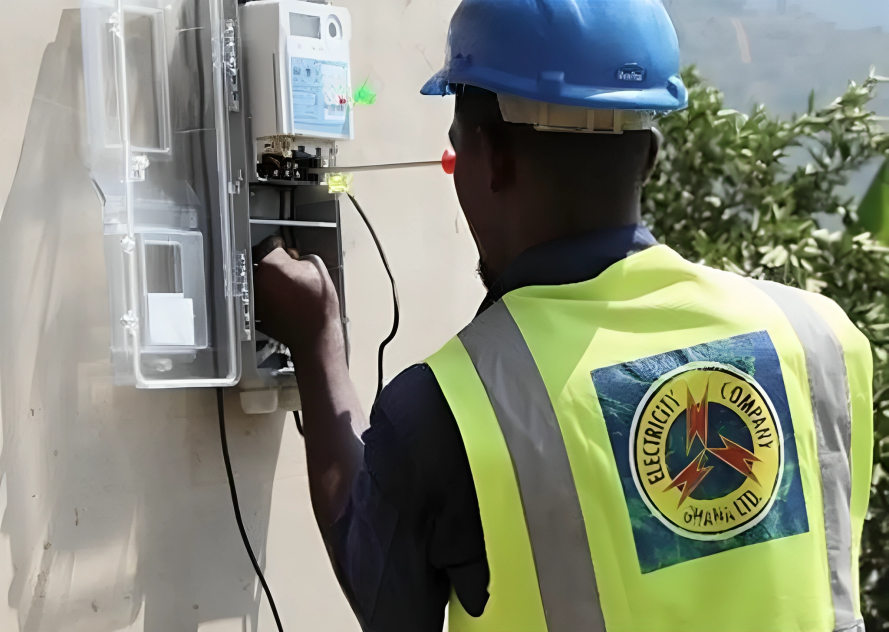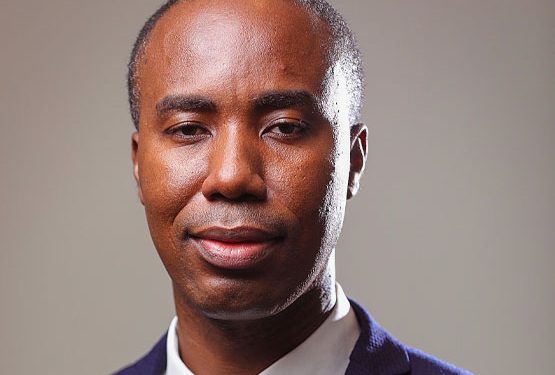
The concept of credit scoring has evolved significantly from its inception in the 1950s by Bill Fair and Earl Isaac (creators of the FICO score system, discussed much later in this article) to today’s advanced algorithms incorporating alternative data.
A credit score is a three-digit number that rates your creditworthiness — essentially, it answers the question: how consistently do you repay your debts? Even in non-formal settings, individuals who lend to family and friends are typically interested in the borrower’s borrowing history. If you ever avoided further lending to a frequent borrower, then that person must have rated poorly in your ‘books.’ Now, flip that for business or international lending, and consider what it means in a broader financial context.
The Digital Transformation of Credit Assessment
Traditional credit scoring systems primarily focused on “the three Cs” – Character, Capacity, and Capital. However, modern systems, as exemplified by innovations like myCreditScore in Ghana, have expanded to include digital footprints, mobile money transactions, and utility payment histories.
Recent studies highlight the transformative impact of mobile technology on credit scoring:
- The GSMA’s 2023 Mobile Economy Report indicates that mobile money accounts in Sub-Saharan Africa have grown to over 621 million
- In Ghana specifically, myCreditScore’s platform leverages a user base of over 22 million mobile money users
- According to McKinsey’s Digital Banking in Africa report, digital lending platforms can reduce loan processing costs by up to 90%
Alternative Data Sources
Modern credit scoring systems incorporate diverse data points:
- Utility payments and telecom data
- Digital transaction history
- Social media and online behavior patterns
- Mobile money usage patterns
- E-commerce transaction history
Economic Impact of Credit Scoring Systems
Risk Management and Financial Stability
Research demonstrates significant benefits of robust credit scoring:
- The World Bank’s “Doing Business” reports consistently show that countries with comprehensive credit information systems have lower rates of non-performing loans
- IMF studies indicate that sophisticated credit scoring can reduce loan default rates by 20-30%
- myCreditScore’s pilot program achieved a notable 2.51% default rate, significantly lower than traditional lending systems
Financial Inclusion Impact
Credit scoring systems contribute to broader financial inclusion:
- World Bank Global Findex Database shows that access to formal credit increases by up to 30% with comprehensive credit scoring systems
- According to CGAP research, alternative credit scoring methods can make up to 50% more people eligible for formal credit
- The Center for Financial Inclusion reports that digital credit scoring can reduce the cost of credit assessment by up to 50%
Socioeconomic Benefits
Employment and Housing
Credit scores impact multiple life aspects:
- Studies by the National Bureau of Economic Research show that improved credit scores correlate with better employment opportunities
- Research by the Urban Institute indicates that good credit scores can save individuals thousands in interest payments over their lifetime
Small Business Development
Credit scoring systems particularly benefit SMEs:
- IFC research shows that comprehensive credit information systems can increase SME lending by up to 50%
- African Development Bank studies indicate that improved credit assessment systems can reduce SME loan processing time by 60%
Technological Innovations in Credit Scoring
Machine Learning and AI
Advanced technologies are reshaping credit assessment:
- PwC research indicates that AI-powered credit scoring can improve accuracy by up to 25%
- According to Deloitte, machine learning algorithms can reduce false positives in credit assessment by up to 50%
Blockchain and Decentralized Finance
Emerging technologies offer new possibilities:
- World Economic Forum research suggests blockchain-based credit scoring could reduce credit assessment costs by up to 70%
- Studies by the Bank for International Settlements indicate that DeFi platforms could provide credit scoring services to up to 1.7 billion unbanked individuals
Policy Implications and Regulatory Framework
Data Protection and Privacy
Credit scoring systems must balance utility with privacy:
- GDPR and similar regulations worldwide have established frameworks for responsible data usage
- The African Union’s data protection guidelines emphasize consent and transparency in credit scoring
Financial Regulation
Regulatory frameworks are evolving:
- Basel Committee guidelines emphasize the importance of robust credit scoring in banking stability
- Bank of Ghana’s regulatory framework for credit bureaus sets standards for credit information sharing
Future Trends and Predictions
Integration of ESG Factors
Environmental, Social, and Governance factors are becoming relevant:
- S&P Global research indicates growing incorporation of ESG metrics in credit assessment
- World Bank studies suggest ESG-integrated credit scoring could better predict long-term creditworthiness
Real-Time Credit Scoring
The future points toward dynamic assessment:
- Gartner predicts that by 2025, 60% of credit decisions will be based on real-time data
- myCreditScore’s real-time updates system demonstrates the feasibility of continuous credit assessment
The Human Impact of Credit Scores: Stories from the Financial Frontier
The Market Trader’s Journey
Aisha’s Story – Makola Market, Accra
Aisha Mensah, a 42-year-old trader in Makola Market, had been running her fabric business for 15 years using only cash transactions. Despite her successful business, she couldn’t expand due to lack of formal credit history.
“I had savings in my mobile money account but no formal bank records,” Aisha explains. “When myCreditScore started considering my mobile money transactions and supplier payment history, my credit score helped me secure a GHS 20,000 business expansion loan. Now I’ve opened a second shop and employed two people.”
The First-Time Homeowner
Kwame’s Experience – Kumasi
Kwame Owusu, a 35-year-old teacher, had been saving for a home down payment for years. “Traditional banks saw me as risky because I had no credit history,” he recalls. “But my consistent utility payments and mobile money transactions gave me a strong credit score. This helped me qualify for a better mortgage rate, saving me thousands in interest payments.”
The Tech Entrepreneur
Sarah’s Innovation – Accra Tech Hub
Sarah Addo’s software startup struggled to get funding despite strong revenue. “Banks wanted three years of financial statements, which we didn’t have as a young company,” she shares. “Our credit score, based on our digital transaction history and mobile money business account, helped us secure GHS 150,000 in growth capital.”
Impact Metrics from Real Cases
Small Business Growth
Based on myCreditScore’s pilot data:
- Average loan size: GHS 15,620
- Business expansion success rate: 78%
- Job creation per loan: 1.5 new positions
Mortgage Access Improvement
Among first-time homebuyers using the system:
- Average interest rate reduction: 2.3%
- Approval rate increase: 45%
- Processing time reduction: 60%
Community Impact Stories
The Village Savings Group
Volta Region Case Study
A savings group of 15 women in the Volta Region used their collective credit scores to access larger loans. Group leader Grace Amenu reports: “Our group’s perfect repayment record on small loans helped us build strong individual credit scores. Now we’re helping other women’s groups do the same.”
The Farmer’s Cooperative
Northern Region Success
A cooperative of 30 smallholder farmers in Tamale used their credit scores to secure seasonal financing. “Previously, we relied on informal lenders charging up to 100% interest,” says cooperative head Ibrahim Salifu. “With our credit scores, we accessed bank loans at 25% interest, transforming our farming operations.”
Educational Impact
University Student Support
Legon Campus Initiative
The University of Ghana’s financial literacy program incorporated credit score education, reaching 5,000 students. Program coordinator Dr. Kwesi Mensah notes: “Students now understand how their mobile money usage affects their future financial opportunities.”
Corporate Integration Examples
Small Business Vendor Program
Major Retailer Case Study
A leading Ghanaian retail chain used vendor credit scores to expand their supplier base. “We onboarded 200 new small suppliers in six months, compared to 50 in the previous year,” reports their procurement manager.
Statistical Impact
Real Numbers from the Ground
Based on myCreditScore’s pilot program:
- Credits disbursed: 40,791
- Total value: GHS 637,799.82
- Default rate: 2.51%
- NPL rate: 3.44%
- Average processing time: 24 hours
Future Possibilities
Innovation in Action
Tech Hub Development
Accra’s emerging fintech hub is developing new applications:
- Automated credit scoring for gig economy workers
- Integration with e-commerce platforms
- Real-time credit score monitoring apps
Environmental Credit Scoring
Green Initiative Pilot
A new pilot program considers environmental responsibility in credit scoring:
- Solar power adoption
- Sustainable business practices
- Eco-friendly transportation choices
Challenges and Solutions
The Digital Divide
Rural Access Initiative
Mobile credit score agents now serve rural areas:
- 150 agents deployed
- 2,000 rural residents registered
- 500 successful rural loans
Education Gap
Financial Literacy Campaign
The “Know Your Score” campaign reached:
- 100,000 people through radio
- 50,000 through mobile workshops
- 30,000 through social media
References
- myCreditScore Pilot Program Data (2024)
- Ghana Statistical Service Economic Impact Studies
- Bank of Ghana Financial Inclusion Reports
- World Bank Ghana Development Indicators
- GSMA Mobile Money Impact Studies
- Local Financial Institution Case Studies
- University of Ghana Financial Literacy Research
- Ghana Microfinance Network Reports
- World Bank Global Findex Database (2021)
- McKinsey & Company Digital Banking in Africa Report (2023)
- IMF Working Papers on Credit Information and Financial Inclusion
- African Development Bank SME Finance Reports
- PwC FinTech Trends Report (2023)
- Deloitte AI in Banking Study (2023)
- Bank for International Settlements DeFi Research Papers
- World Economic Forum Blockchain Studies
- CGAP Digital Credit Market Analysis
- myCreditScore Pilot Program Data (2024)
- Basel Committee Banking Guidelines
- Bank of Ghana Regulatory Framework
- S&P Global ESG Credit Assessment Studies
- Gartner Future of Banking Reports
The post What you should know about credit scores appeared first on The Business & Financial Times.
Read Full Story














Facebook
Twitter
Pinterest
Instagram
Google+
YouTube
LinkedIn
RSS